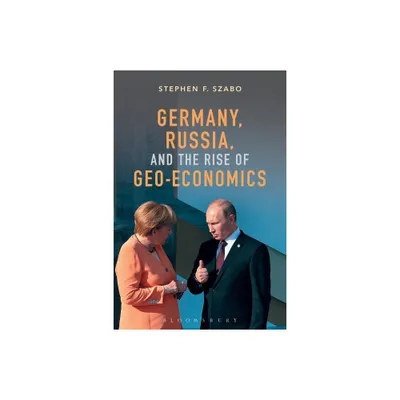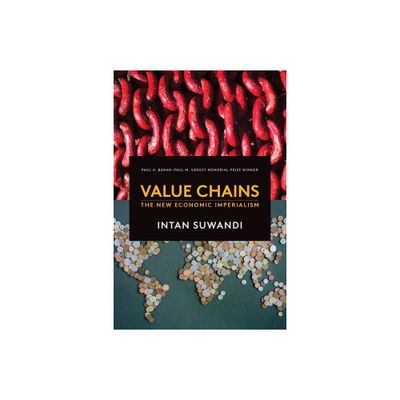Home
Value Chains Transformation and Transport Reconnection Eurasia: Geo-economic Geopolitical Implications
Loading Inventory...
Barnes and Noble
Value Chains Transformation and Transport Reconnection Eurasia: Geo-economic Geopolitical Implications
Current price: $66.99


Barnes and Noble
Value Chains Transformation and Transport Reconnection Eurasia: Geo-economic Geopolitical Implications
Current price: $66.99
Loading Inventory...
Size: Hardcover
*Product Information may vary - to confirm product availability, pricing, and additional information please contact Barnes and Noble
This book focuses on the geo-economic and geopolitical impact of value chains transformation on the transport-logistic reintegration of continental Eurasian countries, with a specific focus on the members of the Eurasian Economic Union.
The author assesses the potential impact of current trends (global value chains fragmentation and decoupling) on Eurasian transport integration. The book combines in-depth analysis of the evolution of value chains and transport-logistics corridors across Eurasia with a geopolitical assessment of its implications for the EAEU’s members’ foreign and economic policy orientation. The author explores three key arguments: (1) the key to a successful and sustainable integration of the transport space of continental Eurasia is less the ongoing expansion of transcontinental transit, and more the participation in intraregional and transregional cross-border value chains, even though this process is increasingly tied to the question of the geopolitical and geo-economic orientation of continental Eurasia; (2) even in a more regionalised world economy, the economic complementarities between continental Eurasia and the two manufacturing blocks at the edges of the supercontinent, Europe and Asia, represent the greatest chance for continental Eurasia for larger participation in high value-added value chains; and (3) without diversifying trade and financial ties across Asia and normalising relations with the EU, the combined effect of shifting value chains location across the continent and China’s ambiguous and flexible transport politics might turn an unprecedented chance into risk, augmenting competition among and within countries which are members of the EAEU over traffic volume, FDI, value chain participation, and ultimately geopolitical and geo-economic dividends.
This book will be of interest to scholars and students of IR Theory, IPE, Geopolitics and Regional Studies, as well as the related subfields of transport geography, economic geography, and logistics.
The author assesses the potential impact of current trends (global value chains fragmentation and decoupling) on Eurasian transport integration. The book combines in-depth analysis of the evolution of value chains and transport-logistics corridors across Eurasia with a geopolitical assessment of its implications for the EAEU’s members’ foreign and economic policy orientation. The author explores three key arguments: (1) the key to a successful and sustainable integration of the transport space of continental Eurasia is less the ongoing expansion of transcontinental transit, and more the participation in intraregional and transregional cross-border value chains, even though this process is increasingly tied to the question of the geopolitical and geo-economic orientation of continental Eurasia; (2) even in a more regionalised world economy, the economic complementarities between continental Eurasia and the two manufacturing blocks at the edges of the supercontinent, Europe and Asia, represent the greatest chance for continental Eurasia for larger participation in high value-added value chains; and (3) without diversifying trade and financial ties across Asia and normalising relations with the EU, the combined effect of shifting value chains location across the continent and China’s ambiguous and flexible transport politics might turn an unprecedented chance into risk, augmenting competition among and within countries which are members of the EAEU over traffic volume, FDI, value chain participation, and ultimately geopolitical and geo-economic dividends.
This book will be of interest to scholars and students of IR Theory, IPE, Geopolitics and Regional Studies, as well as the related subfields of transport geography, economic geography, and logistics.


















